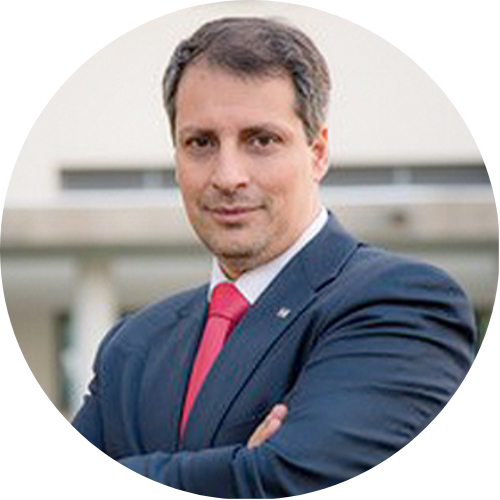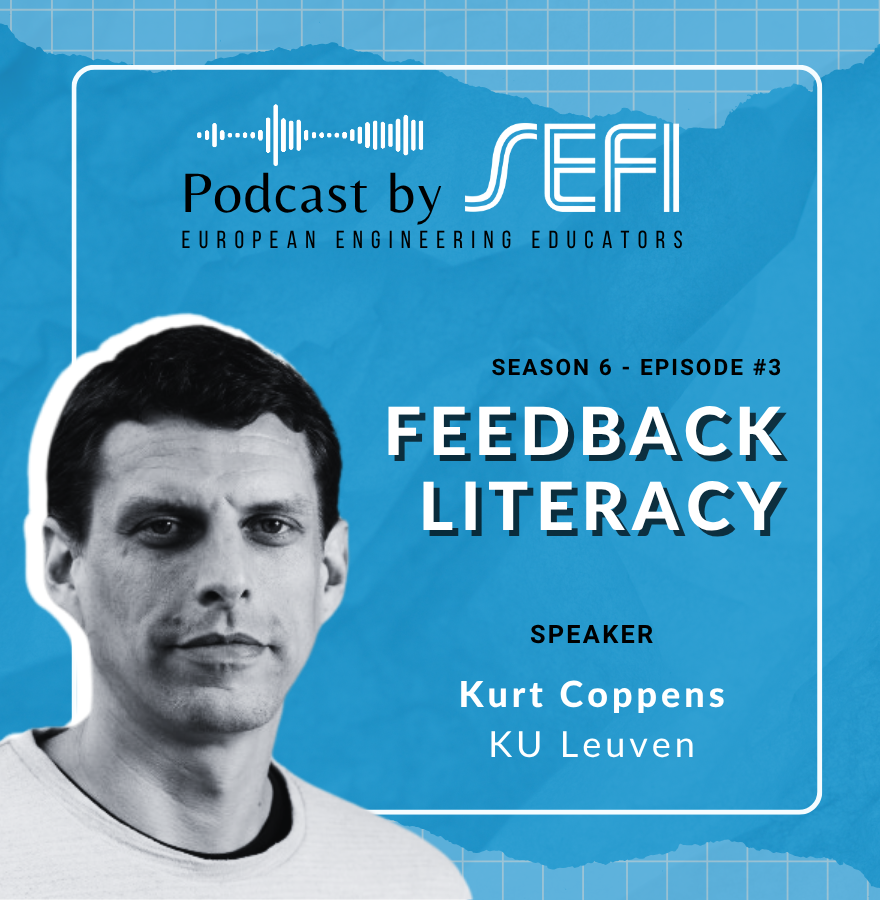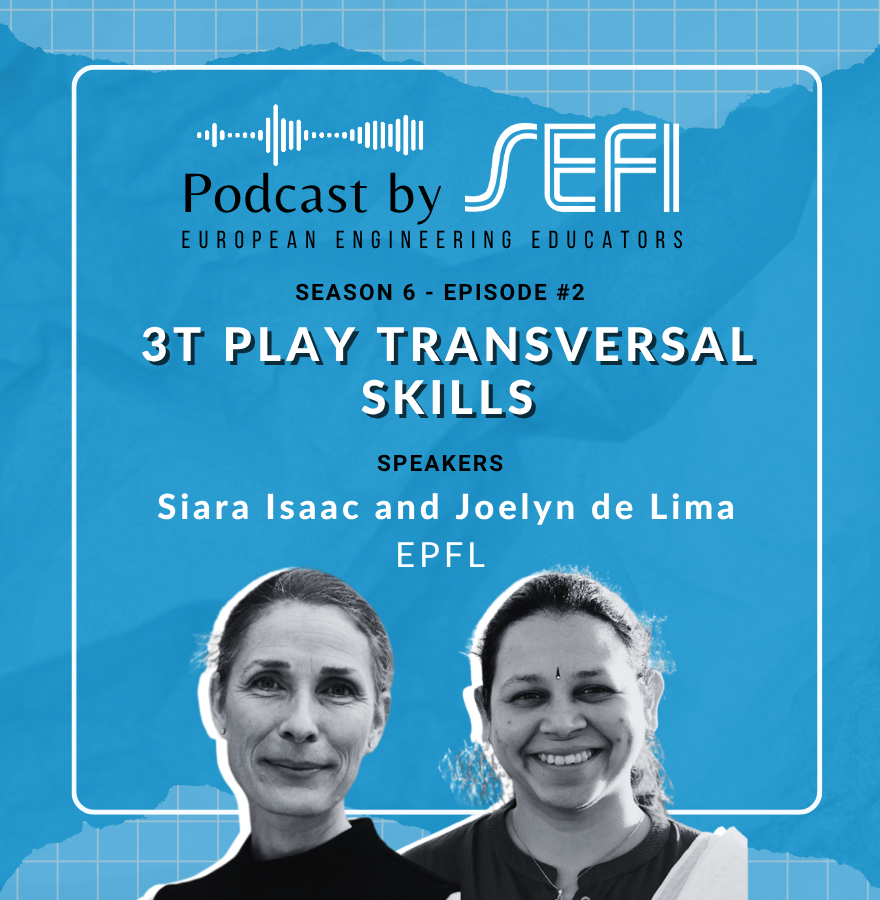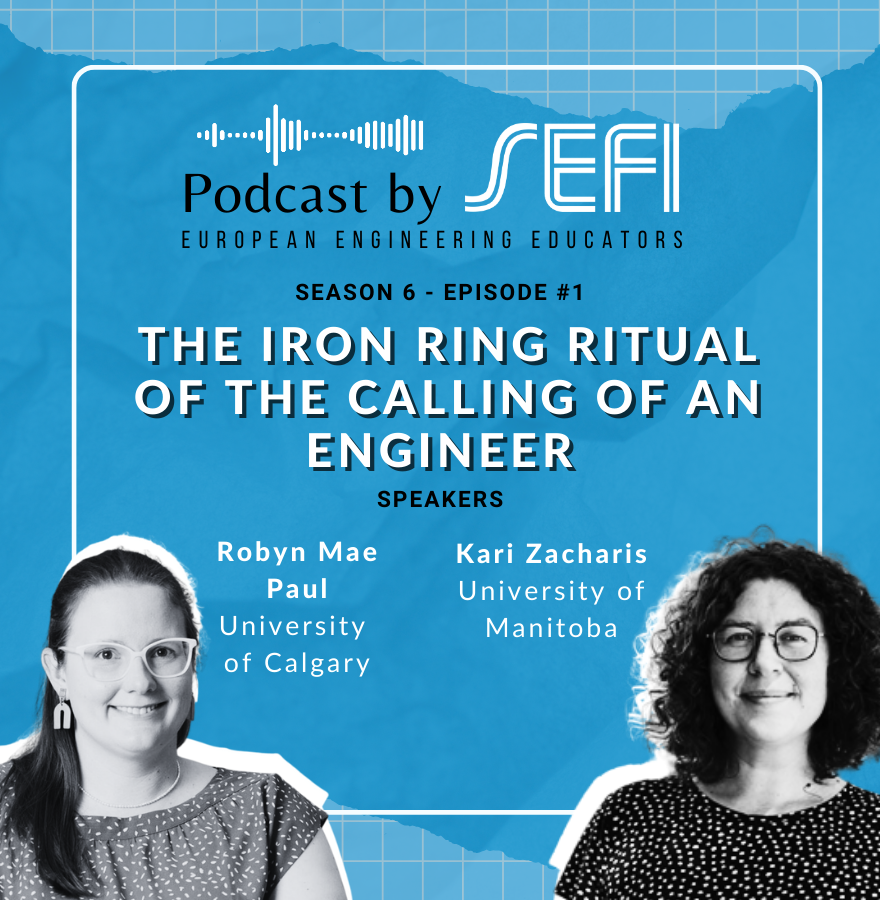Feedback is a somewhat perennial topic within higher education (HE), with increasing emphasis on students…
José Carlos Quadrado from ISEL Portugal on Recognition with Neil Cooke and Natalie Wint

Higher education stakeholders make increasing calls for teaching professionalisation. However, academics face varying levels of training for their teaching careers dependent on their context, with development opportunities focussed on research. In engineering education, this training gap is especially pertinent due to specialised pedagogies and rapidly changing market demands. International peer validation of an engineering educator’s professional activities and their training offers a measure of quality assurance, and an exciting opportunity for global professional recognition.
In this episode we talk to Professor José Carlos Quadrado from The Lisbon Higher Institute of Engineering and President of the ENTER (EngineeriNg educaTors pEdagogical tRaining) network, an international entity that regulates the profession of engineering teaching worldwide. The international ENTER project was developed as part of an EU Erasmus program which focused on developing a novel approach in pedagogical training of engineering teachers which is considered as necessary to support the development of a modern generation of engineers for the future.
The rest of the article will summarise the key points discussed.
José explains that the project came about in 2018 from various conversations with different colleagues across the world in which the need for common ground was discussed. He goes onto explain that the initial process involved understanding the competencies of engineering educators across the globe and the use of questionnaires which were given to a number of associations and institutions. He describes their different contexts, for example, the degree to which engineers are considered as specialists or generalists and the role of practice versus theory. Other differences included the degree to which graduates were expected to be ‘job ready’ upon graduation and the role of lifelong learning.
However, José also speaks against the idea of convergence upon a single standard for engineering education, saying that there is value in diversity and the existence of different types of engineering. To this end, he explains that methods of standardisation such as accreditation should not be too intrusive or prescriptive and should allow individual institutions to meet their own desired objectives. José claims that the project has provided the opportunity for educators to demonstrate their commitment to the profession by completing a review of their competencies, supported by evidence, which is then reviewed by three peers who will make suggestions of areas for improvement. Submissions can be made in twelve different languages which covers 90% of languages used throughout the world. He explains that those who register are assigned a professional level according to the evidence provided and that there are six different levels of educator. He tells us that most people fall into the first category, this being simply educator, which is referred to as someone that teaches using accepted theories and practice, seeking to raise students’ awareness and instill their understanding, inspiring students to pursue their interest and delve deeper into certain subjects.
Other levels include ‘effective educator’ which involves being well prepared, organising and planning each class, setting clear expectations, positive attitudes with the students and with colleagues and assessing teaching on a regular basis to inform adjustments to strategies. At an even higher level is ‘outcome-based educator’ who would practice outcome-based teaching and learning and ‘scholarly educators’ who practice scholarship of teaching and learning and who consider teaching as intellectual work. There is then the education researcher who conducts education research to improve HE and develops strategies for solving prominent issues for future education, such as recruitment, the need for new competencies, and the ability to deal with the modern times of interdisciplinarity and complex knowledge.
José explains that the process facilitates the recognition of educators and their knowledge, understanding and capabilities, and also strengthens a universities’ accreditation applications.
Resources
For more information about ENTER, visit the website. www.enterprof.org
The following paper describes the process involved in program development and details how surveys of employers, teachers, and engineering university students, as well as scientific periodicals aided in identifying the universal and specific engineering and pedagogical competencies that educators should master. Based on the competency analysis, a three-level modular teacher training/retraining program (iPET program) is presented. https://vovr.elpub.ru/jour/article/view/2296?locale=en_US
The following paper focuses on the justification and incorporation of sustainable development course into the certified training of engineering educators.
Quadrado, J.C., Galikhanov, M.F., Zaitseva, K.K. (2020). Sustainable Development Principles for Engineering Educator. Vysshee obrazovanie v Rossii = Higher Education in Russia. Vol. 29, no. 6, pp. 75-82. DOI: https://doi.org/10.31992/0869-3617-2020-29-6-75-82


